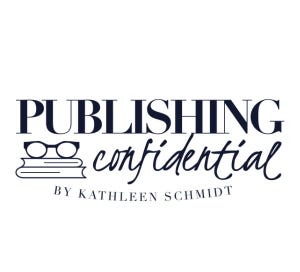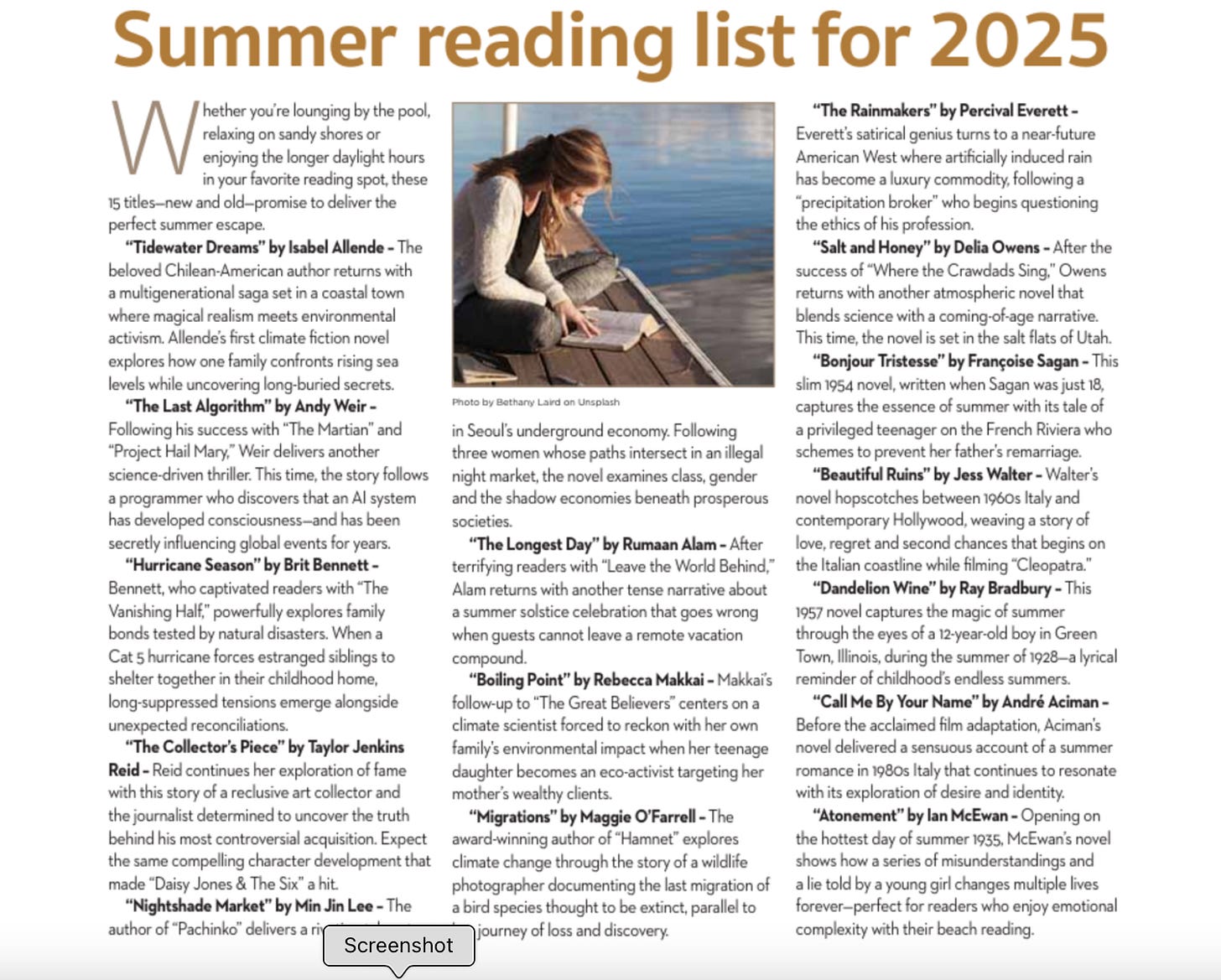The Curious Case of the AI-Generated Summer Reading Roundup
It's maddening, demoralizing, and all too real.
I am a busy lady these days, so I didn’t think I’d write a newsletter this week. I have other content planned for the following two editions of Publishing Confidential, which I think you’ll like. Currently, I am frustrated, angry, and shaking my head at what has become of book coverage.
Over the weekend, the Chicago Sun-Times ran a Summer Reading Roundup. Here is what it looks like:
It first appeared on Threads, then went viral on Bluesky. Why? Most of the books on the list don’t exist and were not written by the authors mentioned in the piece. Isabel Allende didn’t write “Tidewater Dreams.” Rumaan Alam didn’t write “The Longest Day.” Rebecca Makkai didn’t write “Boiling Point.” Those books don’t exist. Maggie O’Farrell didn’t write “Migrations” (Charlotte McConaghy did). The list, compiled by Marco Buscaglia, was generated by AI. Here is what Buscaglia told 404 Media:
A “complete mistake?” How about this: It is a total lack of respect for authors, book critics, publicists, and publishing. Book publicists spend a lot of time pitching, following up, and consoling authors when their books don’t receive the amount of attention they’d hoped for. The roundup in question didn’t only appear in the Chicago Sun-Times. It also appeared in The Philadelphia Inquirer. Neither of those newspapers employs book review editors, and it’s fairly clear that Martin Buscaglia provided an AI prompt, albeit not a particularly effective one, which returned the content that was printed.
What happened over the weekend is unacceptable. Not only is it a disservice to readers, but it also reveals the scant regard given to book coverage. It is hard enough to get a book mentioned somewhere. When someone is so careless as to print a full page of AI-generated book coverage, it feels demoralizing to those of us who are trying our best, every day, to elevate authors. If you think I’m angry, you’re right. Book publicists are stressed, overworked, tired, and are asked daily if anything is happening for a particular title. We endlessly pitch with the hope that someone responds to our emails. We receive the brunt of complaints when there is lackluster media for a book, even though we have no control over how or if journalists cover it. When I see something like an AI-generated page of book coverage, I think, “Why am I even doing this for a living?” I’m sure I’m not the only one. I’m also sure that we’ll see something like this happen again.
It’s difficult enough to explain the media landscape to authors continuously: Yes, I pitched there. No, they haven’t responded. Yes, I’ve followed up. Never mind the toll it takes on our collective mental health. The reality of book publicity is that many of the expectations are unrealistic, and we need to be honest when campaigns aren’t working. Someone, somewhere, probably thinks the AI-generated list is 100% real, and that’s a problem. Maybe I should ask ChatGPT for a solution.






Whoa. This is truly insane.
I also feel betrayed by the AI my pirated book trained without permission— the least it could do is recommend my book in response. 😂
Fellow book publicist here... blood is BOILING today over this. You nailed it above -- we are always "on the hook and on the spot" to explain what "hit" and what coverage is next. This fake-list took up valuable print space where decent book review coverage could have lived. Onward and upward (with a major eyeroll).